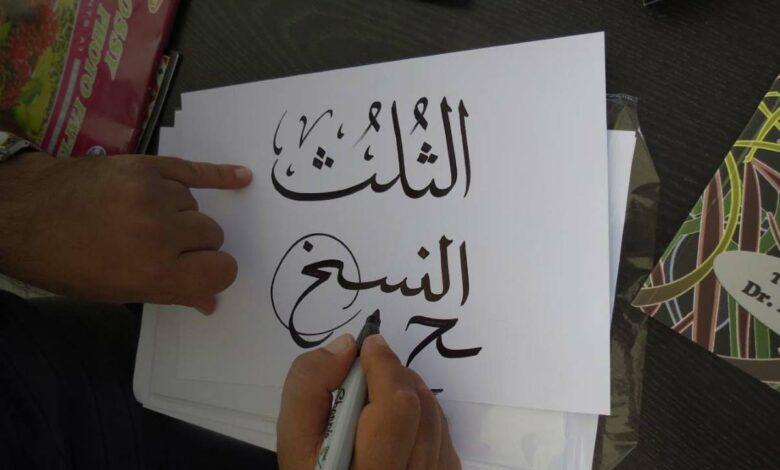
The Role And Importance Of Arabic Language In Nigeria
The Role And Importance Of Arabic Language In Nigeria – Arabic is a Semitic language spoken by more than 400 million people around the world, including in Nigeria. It is the official language of many countries in the Middle East and North Africa, and it is also widely spoken in other parts of the world.InformationGuideNigeria
In Nigeria, Arabic is spoken by a small minority of the population, primarily by those who follow the Islamic faith. It is also spoken by some members of ethnic groups that have historical ties to the Arab world, such as the Hausa, Kanuri, and Fulani.JAMB Portal
👉 Relocate to Canada Today!
Live, Study and Work in Canada. No Payment is Required! Hurry Now click here to Apply >> Immigrate to CanadaThe importance of Arabic in Nigeria stems from its role as the language of the Islamic holy book, the Quran, and as the language of religious education for many Muslims in the country. Many Muslims in Nigeria study Arabic to understand and learn about their religion and to participate in religious practices such as prayer and recitation of the Quran.
Read Also: The Role Of NERDC In Curriculum Development
Arabic is also an important language in Nigeria for cultural and economic reasons. It is used in trade and commerce, particularly in the north of the country where there are strong economic and cultural ties to the Arab world. It is also used in higher education and research, and many universities in Nigeria offer courses in Arabic language and literature.
What is Arabic Language?
It’s the Semitic language that is spoken by the Arabs. However, it’s spoken by around 150 million people across North Africa, the Middle East, and North Africa.5 Best Mtn Wifi in Nigeria and their prices
It is believed that the Arabic alphabet can be written left to right and comprises 28 letters. It has a long literary heritage and is well-known for its intricate syntax and grammar. It is also a crucial language for Muslims because it’s the one that the Qur’an which is the holy text of Islam is written.NYSC Portal
Apart from being used as a primary language by thousands of individuals, Arabic is also studied as an alternative language by people from all over the world for a range of reasons, such as academic, business, and cultural reasons.The Role And Importance Of Arabic Language In Nigeria
Read Also: The Role Of Agriculture In Food Security In Nigeria
Arabic Language and the Nigeria Society
The Arabic language has a long history in Nigeria, dating back to the early centuries of Islam. The religion of Islam was introduced to Nigeria by Arab traders and scholars, who brought with them the Arabic language and culture.105 Good Morning Love Messages
👉 Relocate to Canada Today!
Live, Study and Work in Canada. No Payment is Required! Hurry Now click here to Apply >> Immigrate to CanadaIn the early centuries of Islam in Nigeria, Arabic was primarily a language of religious education and practice, used by scholars and theologians to study and teach the Quran and Islamic law. It was also used in trade and commerce, as Arab traders and merchants established trade routes and commercial networks in the region.
Read Also: The Role Of Local Government In Economic Development In Nigeria
Over time, Arabic became an important language in Nigeria for cultural and social reasons. Many Nigerians, particularly those in the north of the country, have historical and cultural ties to the Arab world, and Arabic is an important part of their identity. It is also spoken by many Nigerians as a second language, particularly by those who follow the Islamic faith. Today, the Arabic language in Nigeria reflects the long-standing ties between the country and the Arab world, and the enduring cultural and linguistic influence of Arabic in Nigeria.
Read Also: The Role Of Media In Nigeria’s Democracy
The Role and Importance of Arabic Language in Nigeria
Arabic is an important language in Nigeria for a variety of reasons. One of the main reasons for the importance of Arabic in Nigeria is its role as the language of the Islamic holy book, the Quran. Many Muslims in Nigeria study Arabic to understand and learn about their religion, and it is also used in religious education and practice. Some of the roles and importance of the Arabic language in Nigeria include:200 Romantic Love Message
- National Language: Arabic is one of the three national languages of Nigeria, along with English and Hausa. It is used in government and official communications, as well as in the media and education.
- Islamic Studies: Arabic is the language of the Qur’an and the primary language of Islamic scholarship. It is used in the study of Islam and the teaching of Islamic subjects in schools and universities.
- Trade and Commerce: Arabic is an important language for trade and commerce in Nigeria, as it is widely spoken in the Middle East and North Africa, where Nigeria has significant economic ties.
- Cultural and Historical Importance: Arabic has a long and rich history in Nigeria, as it was introduced to the region by Muslim traders and scholars in the 9th century. It has played a significant role in the development of Nigerian culture and has influenced various aspects of Nigerian society, including art, music, and architecture.
- International Relations: As a global language, Arabic is important for maintaining diplomatic and economic relationships with Arab-speaking countries. It is also useful for conducting business with these countries, as well as for studying and researching topics related to the Middle East and North Africa.
- Travel and Tourism: Arabic is a useful language for travelers to the Middle East and North Africa, as it is spoken in many countries in these regions. It is also useful for working in the travel and tourism industry, as it allows individuals to communicate with Arabic-speaking tourists and business partners.
- Translation and Interpretation: Arabic is an important language for translation and interpretation, as it is widely spoken and has a rich literary tradition. It is used in the translation of documents, literature, and other materials, as well as in the interpretation of spoken language in a variety of settings.
- Employment Opportunities: Knowing Arabic can provide individuals with employment opportunities in a variety of fields, including government, education, international relations, and business.
- Linguistic 9. Diversity: Arabic is one of many languages spoken in Nigeria, and its presence helps to contribute to the linguistic diversity of the country.Top 5 Home Robots to Choose in 2023
- Personal and Intellectual Growth: Learning Arabic can be a rewarding personal and intellectual experience, as it allows individuals to engage with a different culture and expand their knowledge and understanding of the world.
Read Also: The Role Of STAN In Curriculum Development In Nigeria
Conclusion
Arabic is an important language in Nigeria for a variety of reasons. It is the language of the Islamic holy book, the Quran, and is therefore an important language for Muslims in Nigeria who want to study and understand their religion. It is also used in religious education and practice and is an important language for trade and commerce in the north of the country. Arabic is also an important language in higher education and research and is an important part of the cultural identity of many Nigerians.
Check JAMB Result
Check and Confirm: How much is Dollar to Naira







